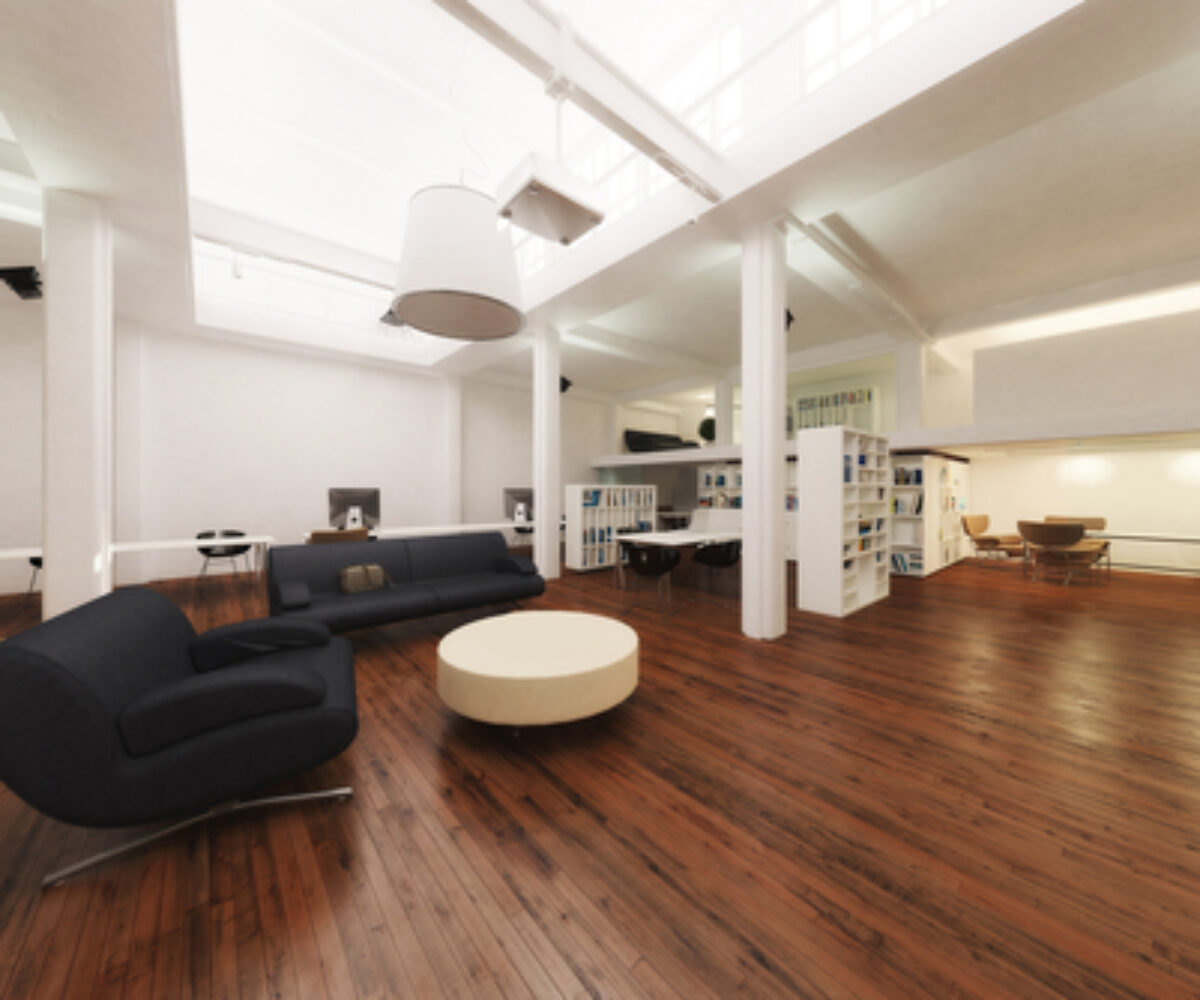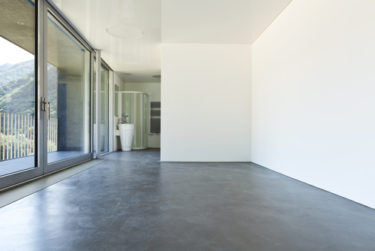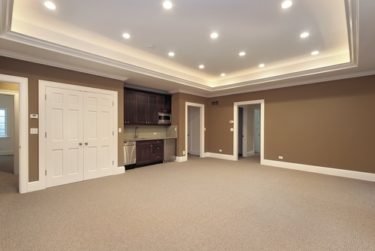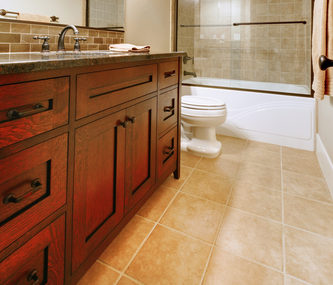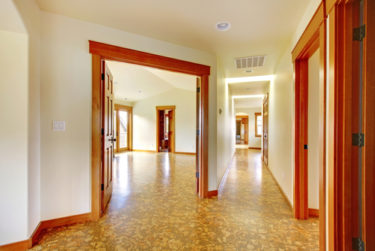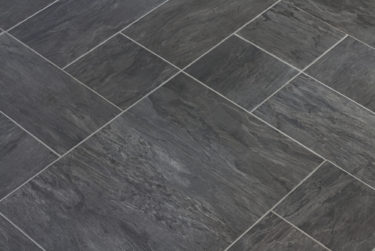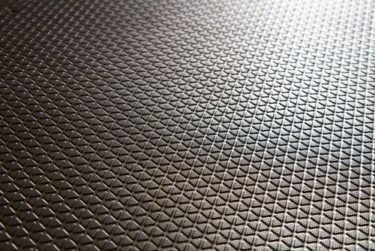The 8 Best Flooring Options for Basements
Here in Denver, Colorado, we have some unique concerns, including low moisture and humidity levels, that should figure into your basement flooring decision. Before having flooring installed, be sure to resolve any level floor surface issues that could make installation difficult and even damage the flooring itself. The 8 best flooring options for basements include:
1. Concrete
This is a practical surface that more and more homeowners are choosing to enhance, rather than cover up. Decorative options include paint and stencils in a variety of designs, and even creating the look of slate, marble or tile. Concrete is an excellent choice for people with allergies. It has a long life expectancy and minor cracks can add to its charm. A non-slip additive can be mixed into the sealer or stain to make the floor safer. Decorative concrete may cost more than other surfaces.
2. Carpet
A popular option for warmth and comfort, carpet is available in a range of styles, colors and price points. Carpet also helps muffle sound. Carpet is a suitable choice for our dry climate, but will be damaged by flooding. It is also subject to wear in high traffic areas and requires more maintenance than hard surfaces.
3. Ceramic tile
In general, tile is easy to care for and can easily be installed in a custom design. It comes in a variety of colors and styles. Tiles are durable and stain-resistant, although the grout can discolor over time. Tiles also do not retain heat well and can be cold on your feet.
4. Cork
Cork is a natural material that resists mold, mildew and rot, and is easy to clean. It is eco-friendly and sustainable, making it a perfect option for today’s green-conscious homeowners. At the time of installation, and every 10 years thereafter (assuming normal wear and tear) apply an acrylic finish to protect against scratches. Be sure the cork floor you select is specifically intended for use in basements.
5. Engineered wood
Engineered wood has the look of a traditional wood floor, but is more durable and water-resistant. Because it is made of layered plywood, it can expand and contract with temperature and moisture changes, making it preferable for use in basements. It comes pre-finished – a benefit to homeowners – and is easy to care for with simple vacuuming and damp mopping. Because it is thinner than hardwood, it can only be refinished once, and is pricier than other flooring options.
6. Linoleum
Linoleum is a popular choice for its versatility, easy maintenance, durability and the fact that it is environmentally friendly. Like tile, however, it is cold underfoot and damage to linoleum can be difficult to repair. It is also susceptible to staining.
7. Vinyl
Vinyl offers the variety and versatility of ceramic tile with a lower price point and simpler installation. Vinyl can be purchased in 12-foot rolls or self-sticking tiles. It works well over concrete as long as the floor is smooth and free of imperfections. To mask minor defects in the surface, you can use a thicker grade of vinyl. As a durable, moisture-proof, maintenance-free floor, vinyl is an excellent option for basement flooring.
8. Rubber Mats
A fun and practical choice for exercise rooms and child play areas, rubber mats come as interlocking tiles in a variety of colors. They are easy to install and maintain, and are resistant to mold, mildew and moisture; they won’t be damaged if the basement floods.
